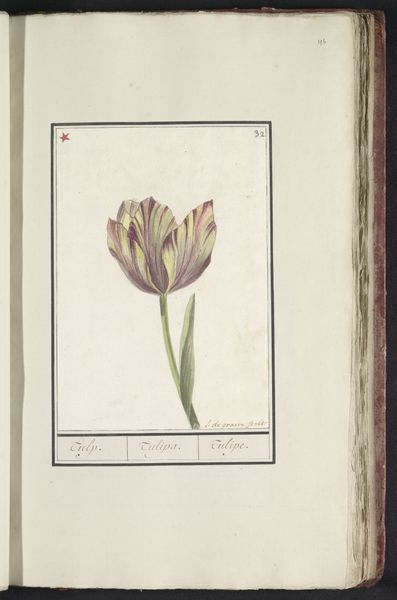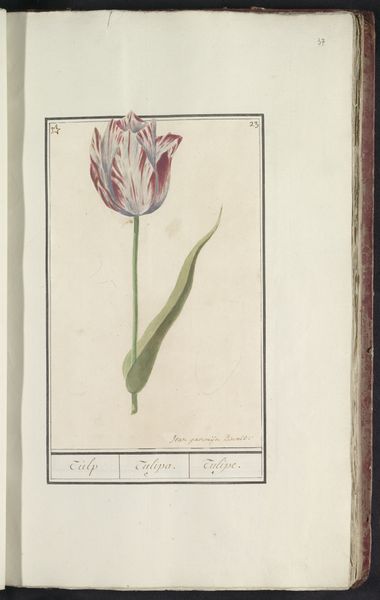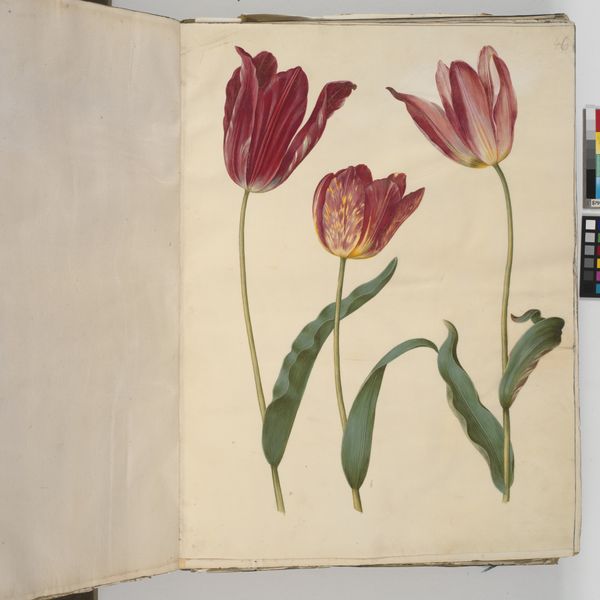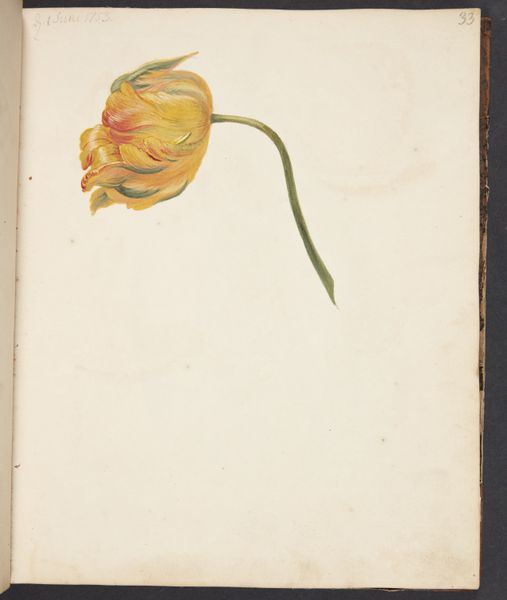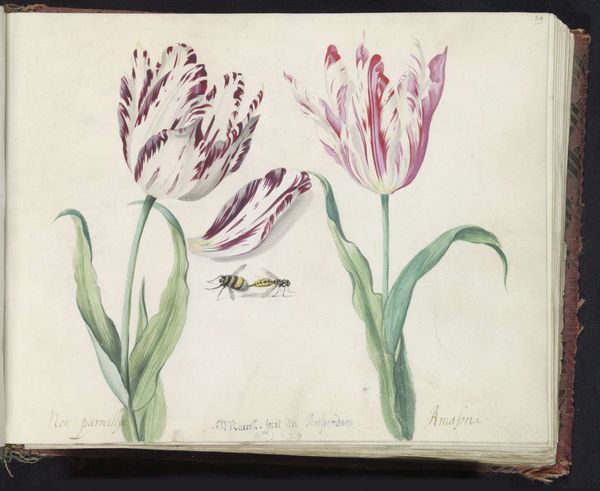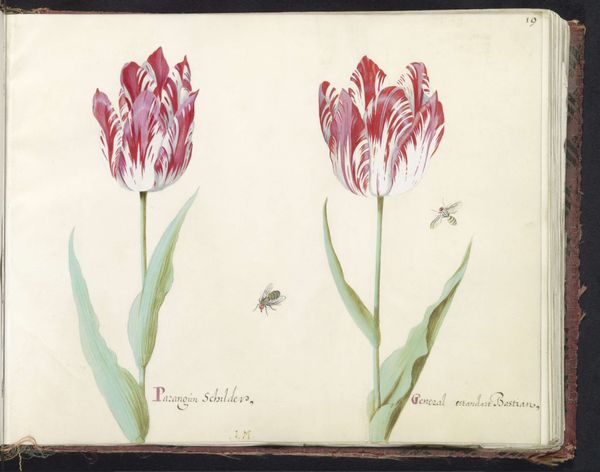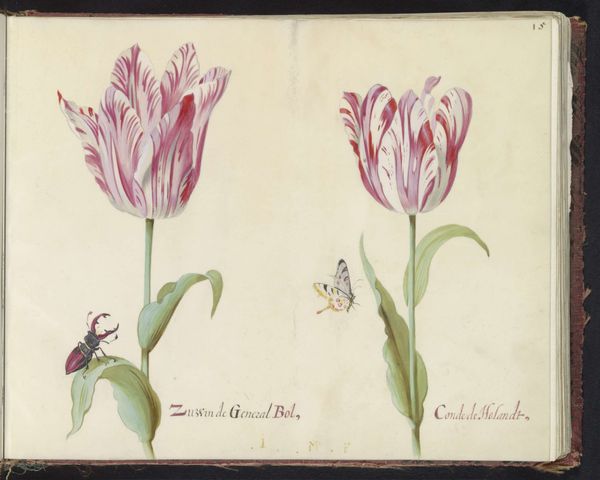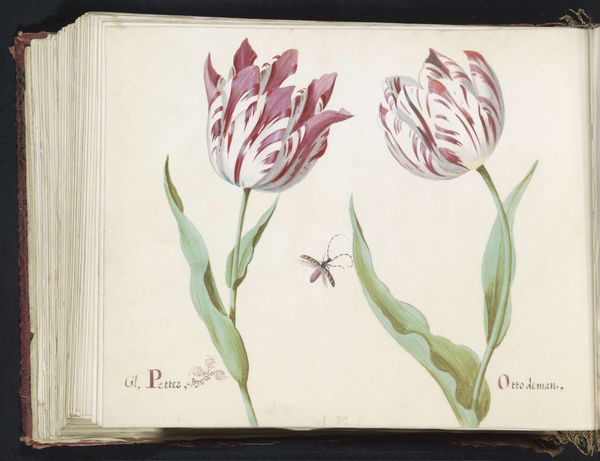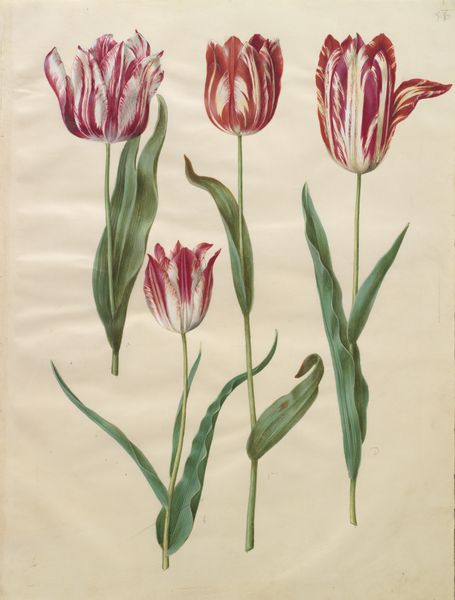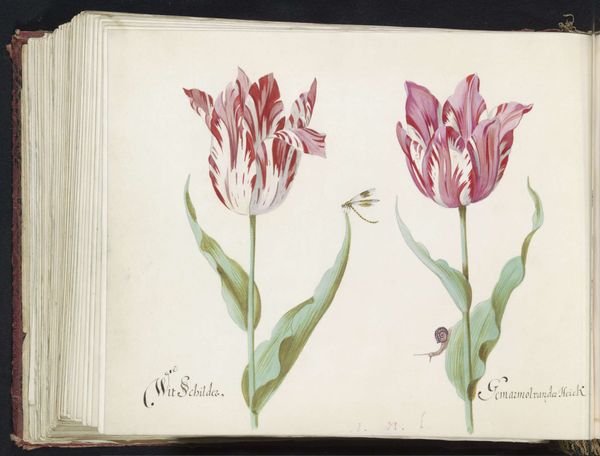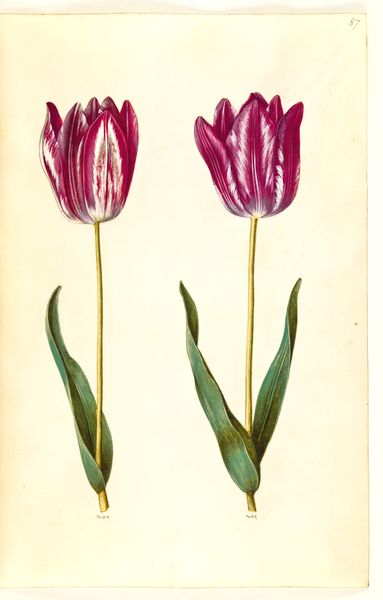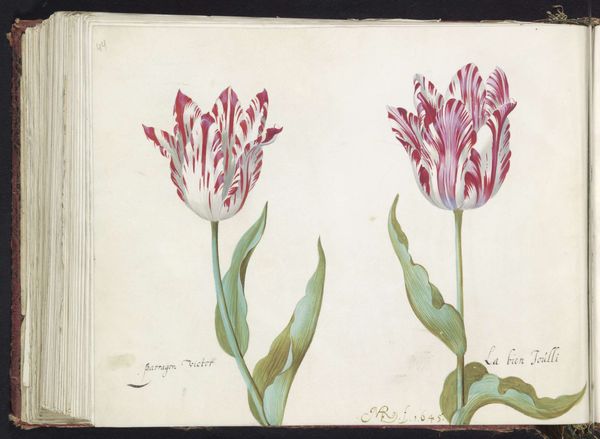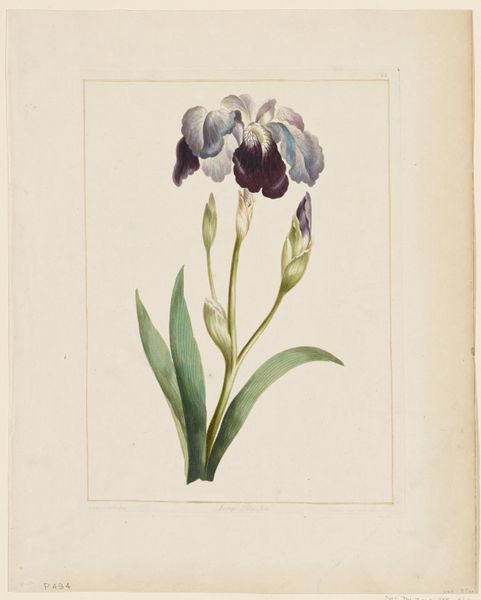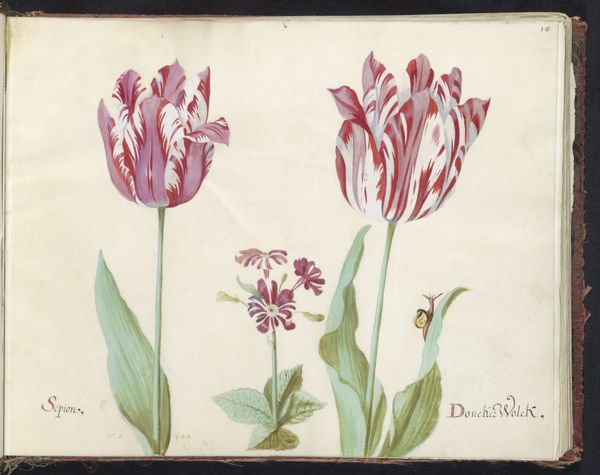
drawing, coloured-pencil, paper, watercolor
#
drawing
#
coloured-pencil
#
paper
#
watercolor
#
coloured pencil
#
watercolor
Dimensions: height mm, width mm
Copyright: Rijks Museum: Open Domain
Editor: This is "Tulp (Tulipa)" by Louis De Graeve, created sometime between 1790 and 1814. It's a delicate watercolor and coloured pencil drawing on paper. I'm struck by its scientific quality, but it's also undeniably beautiful. What do you see in this piece? Curator: It’s more than just beautiful. These botanical drawings were often commissioned and collected at a time of intense colonial expansion. The impulse to classify, catalogue, and visually capture plant life directly supported exploitative extraction of resources from colonized lands. De Graeve’s tulip, in that context, participates in a visual language that facilitated a particular kind of power. Editor: I hadn’t thought of it that way. I guess I was focused on the aesthetic aspect. So you're saying this isn’t just a pretty picture of a flower; it's connected to the history of colonialism? Curator: Precisely. Think about who was consuming these images. Often, they were affluent Europeans who may have never even set foot in the regions from which these plants were taken. The tulip becomes a symbol, removed from its original context and placed within a European framework of ownership and control. And we have to consider how this kind of image making affects the communities from which this knowledge was extracted. Editor: That’s… really changed my perspective. I’ll never look at botanical art the same way. Curator: Good. Recognizing these layers—the power dynamics at play, the erasure of indigenous knowledge—helps us to engage critically with art history. Now, do you think the medium itself plays a role in all this? Editor: The delicate watercolour perhaps gives it a sense of refinement, of almost aristocratic appropriation? I can see how the artistic and social contexts are related now. Thanks for expanding my viewpoint. Curator: And thank you, it is essential to keep asking such questions.
Comments
No comments
Be the first to comment and join the conversation on the ultimate creative platform.
